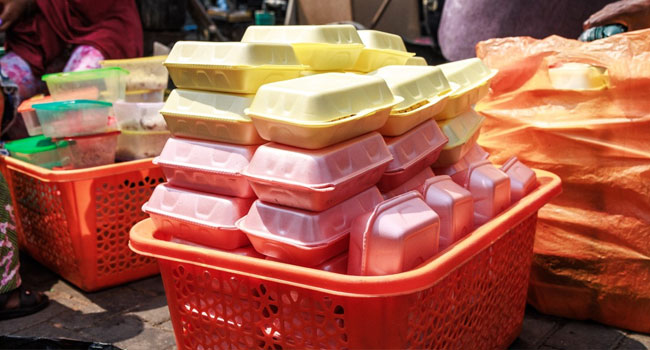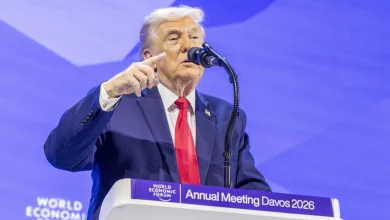
The Lagos State Government has warned that from Tuesday, July 1, 2025, any shop, market, or outlet found storing, selling, or distributing Styrofoam packs, plastic straws, lightweight nylon bags, or disposable cutlery will be sealed.
A statement by the Commissioner for the Environment and Water Resources, Tokunbo Wahab, explained that the ban targets plastic materials below 40 microns, which pose serious environmental threats, especially by clogging drainage channels and polluting Lagos’ fragile coastal ecosystem.
“We gave a six-month grace period, which expired on June 30. Many believe we would succumb to pressure and delay enforcement. It will not happen,” Wahab said.
He added, “Let me also emphasise that any market, store, that is found storing or engaging in sale or distribution of the single-use plastic of less than 40 microns would be sealed up while the offenders would be punished according to the environmental laws of Lagos state.”
According to him, the government decided to ban Styrofoam and other harmful plastics for the safety and well-being of Lagos residents and would not compromise on its environmental responsibility.
He noted that the ban forms part of broader efforts to cut down waste generation and ease the burden on landfill sites, many of which are nearing decommissioning.
The ban does not cover all plastic products, but specifically targets four single-use items due to their non-biodegradable nature and role in environmental pollution:
Styrofoam packs
Plastic straws
Lightweight nylon bags
Disposable cups and cutlery
Wahab clarified that producers and distributors still have the option of transporting the banned items outside Lagos, and dismissed concerns that the policy would lead to job losses.
It’s a no-brainer—no jobs would be lost during this transition. In fact, more jobs will be created when producers and distributors embrace sustainable alternatives,” he said.
He added that Lagos aligns with over 70 countries and major cities that have adopted bans or restrictions on single-use plastics since Bangladesh first implemented such a measure in 2002.
The commissioner stressed that Styrofoam and other banned plastics have a significant impact on Lagos’ infrastructure, often clogging drains and forcing the government to divert public funds to clear waste, resources that could otherwise support critical social services.
According to him, the government has developed covert enforcement strategies.
Channels News










